making meaningful cities
University of Oxford
This impact case study examines the King’s Cross development through the lens of ‘making meaningful cities’. The research team examined what makes living and working in cities meaningful for citizens – and worked with companies and organisations to apply this to investment policy and development practice.
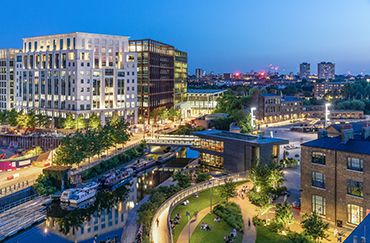
unfolding dilemmas of urban public space
Urban Europe’s AGORA
Urban public spaces fulfil important societal functions and shape many of the characteristics of cities and urban areas. However, there are several dilemmas (competing goals, interests, strategies, wicked issues, etc.) involved in their development and maintenance. In simpler terms, addressing one issue/challenge in an urban context might have negative effects in another realm. Regarding urban public spaces, for instance, typical crossings of concerns relate to everyone’s right to the city, openness to different societal groups, climate change actions and how to cater for safety and security without promoting increasingly exclusive spaces.
The “Unfolding Dilemmas of Urban Public Spaces Report“ breaks down the complexity of the development and maintenance of public urban spaces into ‘bite-sized chunks’: a selected number of dilemmas which is not exhaustive of all issues and concerns. These chunks are to be seen as entry points for urban policy makers, practitioners, civil society organisations, the research community and all other urban actors. The report should inspire to look at interrelated urban challenges through the lens of urban dilemmas and provides policy recommendations to address the complexity.
SMART CITIES
European Commission
The European Commission defines smart cities as places of increased efficiency due to the use of digital and telecommunication technologies for the benefit of its inhabitants and business. This includes smarter urban transport networks, upgraded water supply and waste disposal facilities, more efficient ways to light and heat buildings, more interactive and responsive city administration, safer public spaces and meeting the needs of an ageing population.
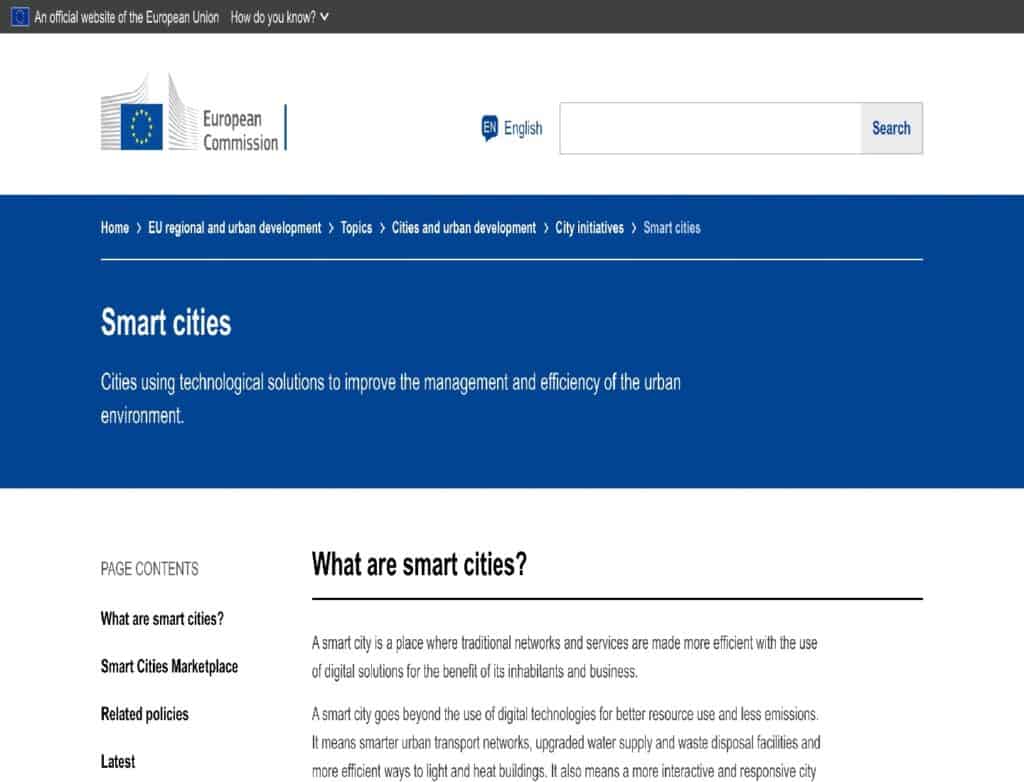
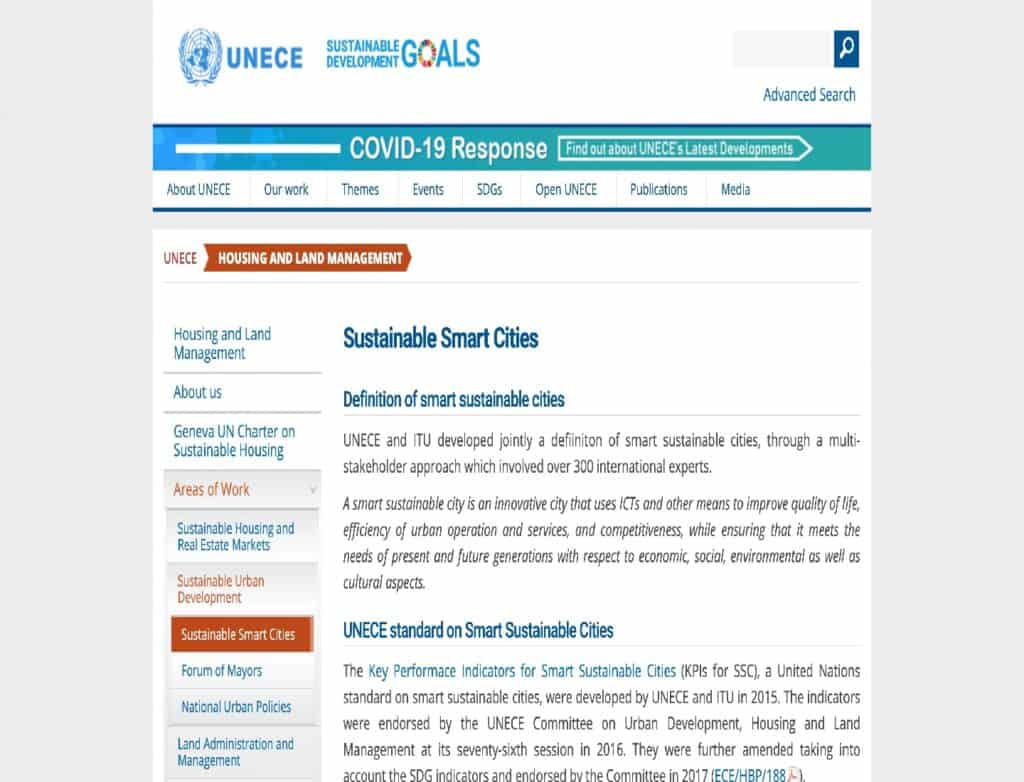
SUSTAINABLE CITIES
United Nations Economic Commission for Europe
UNECE and ITU define sustainable smart cities as cities that use ICTs and other means to improve quality of life, efficiency of urban operation and services, and competitiveness, while ensuring that it meets the needs of present and future generations with respect to economic, social, environmental as well as cultural aspects.
city resilience
World Bank and GFDRR
The City Resilience Program (CRP)’s vision is resilient cities with the capacity to plan for and mitigate adverse impacts of disasters and climate change, thus enabling them to save lives, reduce losses, and unlock economic and social potential. The aim of the program is to catalyze a shift toward longer term, more comprehensive multi-disciplinary packages of technical and financial services, building the pipeline for viable projects at the city level that, in turn, build resilience.
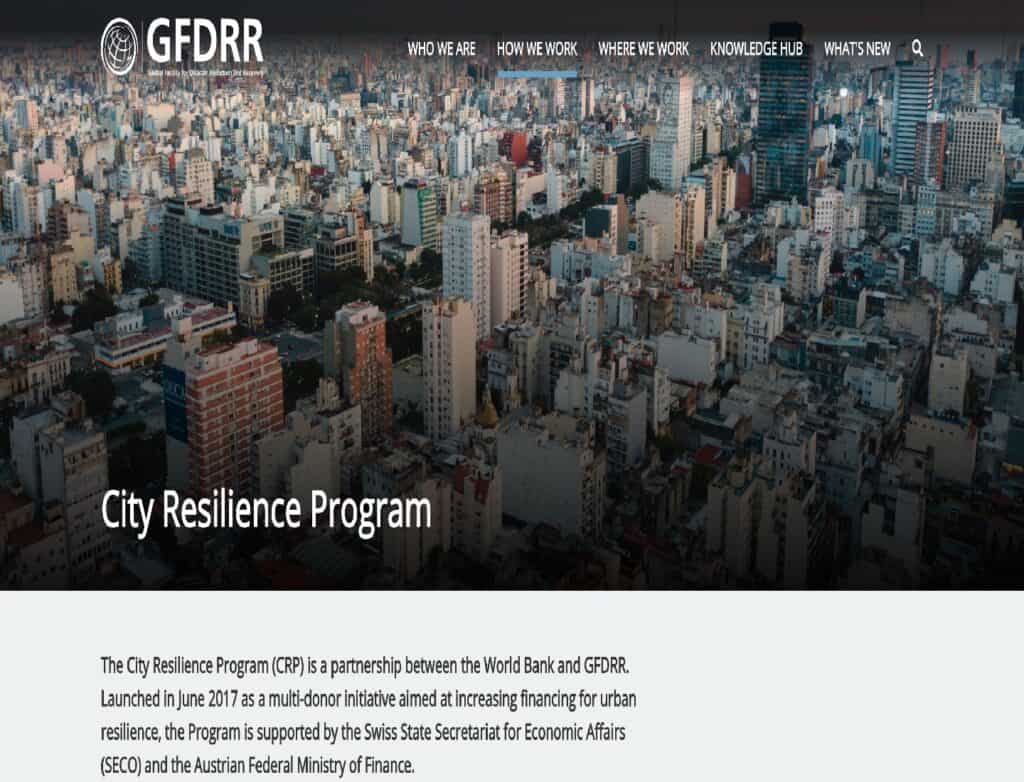
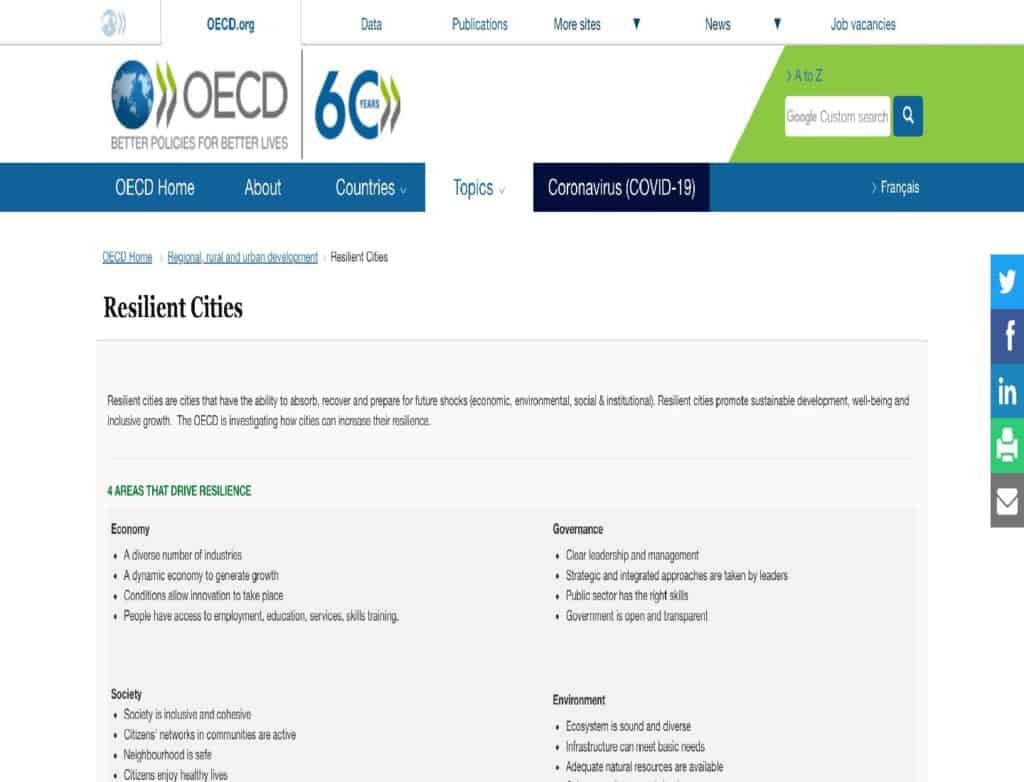
RESILIENT CITIES
Office for Economic Co-operation and Development
According to the OECD resilient cities are cities that have the ability to absorb, recover and prepare for future shocks (economic, environmental, social & institutional) and promote sustainable development, well-being and inclusive growth.